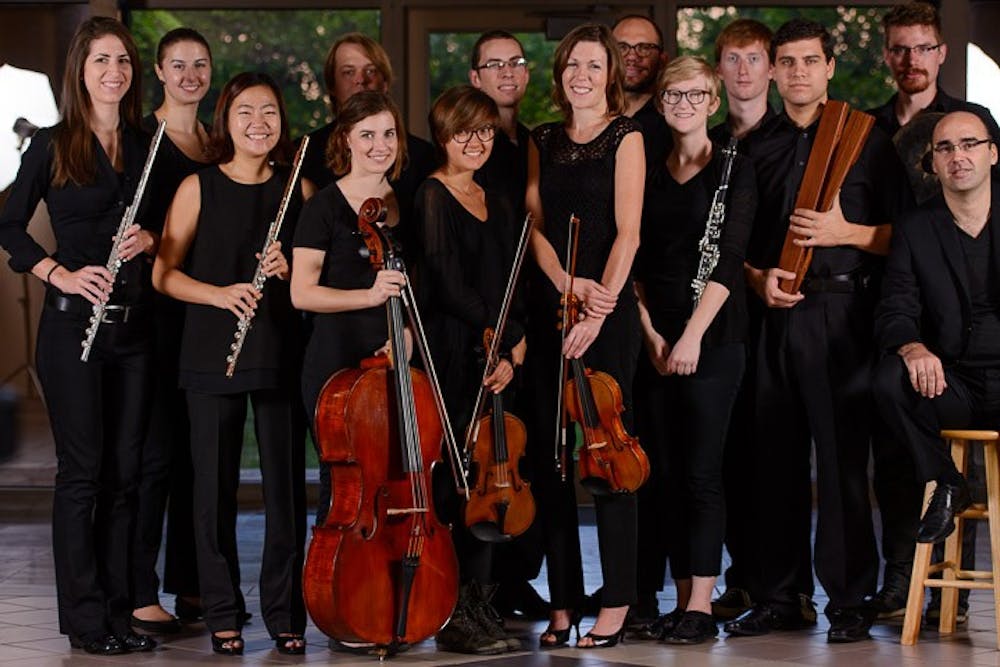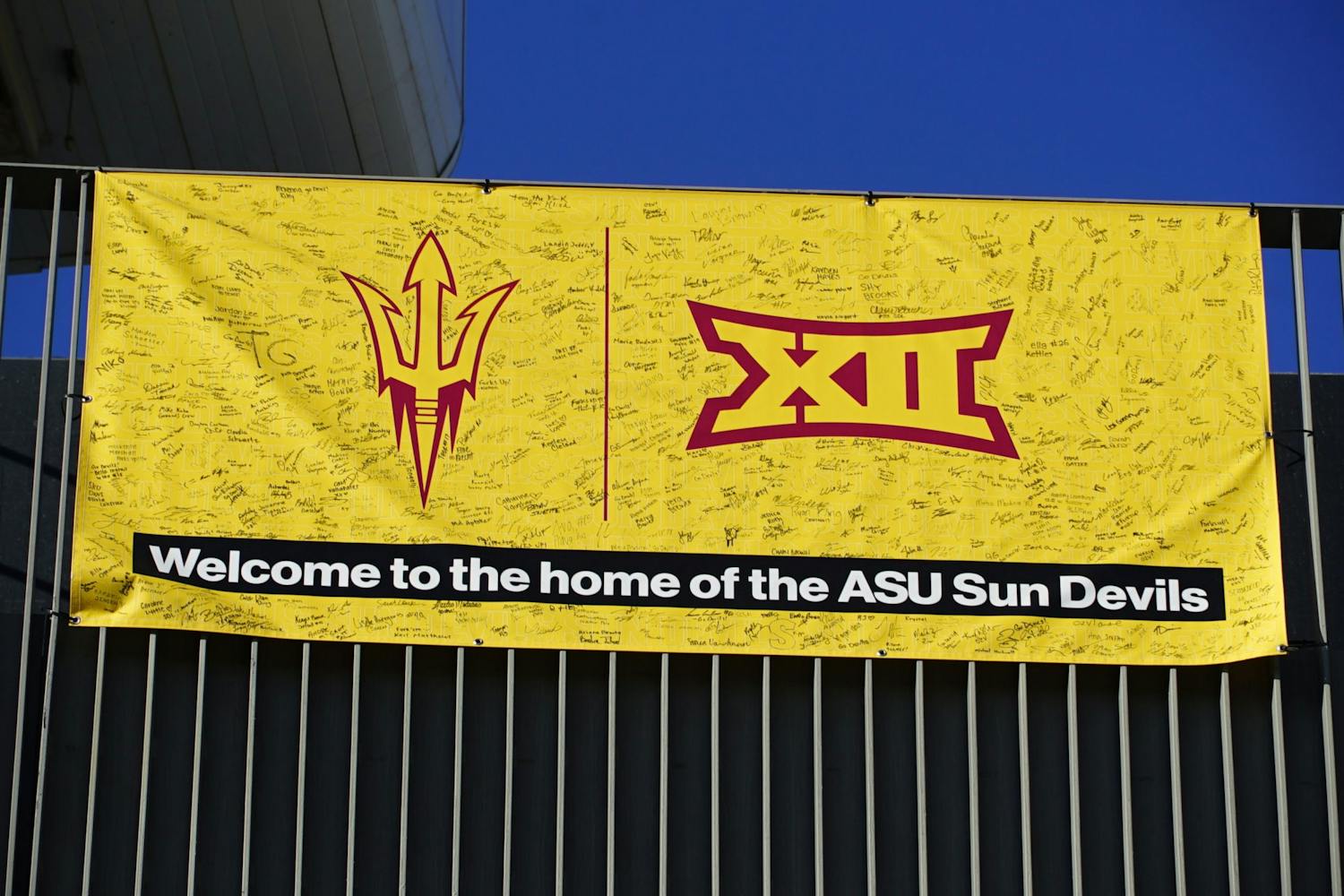Does the thought of a university ensemble music performance evoke the mental image of a stuffy concert hall filled with stiff-backed mahogany chairs and hypercritical elderly people golf-clapping through elbow-length satin gloves?
If so, you're not alone, but that picture could hardly be further from the truth at the Arizona Contemporary Music Ensemble concert this Sunday. Instead, a group of ASU music students will take the stage at the Katzin Concert Hall to present five contemporary works, three of which were written by students.
ACME director and adjunct professor of percussion Simone Mancuso said he believes the concert will be accessible to any audience member, and it's also a great way for students to practice the real-world process of putting together a show.
"This is a super important experience for them," he said. "When they're out in the field, they'll be more competitive as a result."
For several performers, that process started with a pen and paper. The concert includes work by famous composers Iannis Xenakis and Franco Donatoni, but the other three songs were created from scratch by ASU students.
Composition doctorate student Justin Kennedy wrote one of the featured songs. In addition to composing the piece, he will be accompanying the instruments as an overtone singer, utilizing techniques taken from his study of Mongolian vocal styles.
Kennedy said his song, titled "Same Fight.
He said the two societies may have different social problems, but the root issues are the same.
"I realized that a lot of the things people in
Kennedy wrote the song over the course of a month in December and January, and rehearsals began immediately afterward. The most difficult part of the process, he said, has been balancing all of his different responsibilities at once.
"The singing techniques are difficult for me, because I'm overtone singing, which is often more than one note at a time," he explained. "That's already hard, because you're practicing a technique that is vocally demanding — then you're adding speaking a foreign language on top of that, it's tough. By the time I'm done with that, I've had a hard time giving feedback (on the music), because I'm so concentrated on what I'm doing."
However difficult, Kennedy said being able to work with the ensemble members on a personal level has been his favorite part of the process.
Alex Fragiskatos, a second-year doctoral student majoring in percussion, said the feeling is mutual. He plays the marimba in Kennedy's piece and has been rehearsing with the song's seven other instrumentalists several times a week for the last three months.
Fragiskatos said the rehearsal process was unique because the performers have been able to collaborate with Kennedy directly to tweak and perfect the song for its first performance. However, practicing a brand-new work has its difficulties.
"The biggest challenge is the fact that it's a new piece, so you don't have years, decades or centuries of people playing it already," he said. "You're the reference."
But he said that adds to the thrill that comes with getting it right.
"For me, it's added more excitement," he said. "You're part of something new that's never been done before. That can add some pressure because you're basically going on the maiden voyage, and the boat's never been tested."
Fragiskatos said he joined ACME last year precisely because he enjoys that sense of exploration.
"The kind of music we play is very unique — it's not the standard Beethoven, Mozart or Bach," he said. "It's music that's really forward-thinking and very modern, (written) for a contemporary ensemble. I'm a big fan of new music because it pushes the boundary of what music is and propels it forward into exploring new things and trying different ideas."
Lisa Atkinson is a senior undergraduate student studying music composition. She also composed a piece titled "Sustain" for the concert. It's rooted in her own personal experience, she said, but its meaning is left for the audience to interpret and decide.
Atkinson said the chance to work with the performers one-on-one was a valuable learning experience.
"I'm still learning as a composer, so some of the things I had written weren't very clear," she said. "Working with the ensemble, I was fortunate enough to be able to go back, revise things and make them clearer. I was able to speak with the ensemble about my ideas for the piece and be really hands-on working with them."
She said having a supportive director goes a long way in creating a positive overall experience.
"I can't express how fortunate I am to be given this opportunity," she said. "Simone has a very clear direction for the ensemble, and I appreciate how supportive he is of us, as both students and musicians. He really gives students a voice."
The concert will be held at Katzin Concert Hall on Sunday from 2:30 to 4 p.m. Seating is free and open to the public. For more information, visit the concert event page.
Related links:
Contemporary music changes churches
Reach the reporter at skylar.mason@asu.edu or follow @skylarmason42 on Twitter.
Like The State Press on Facebook and follow @statepress on Twitter.




